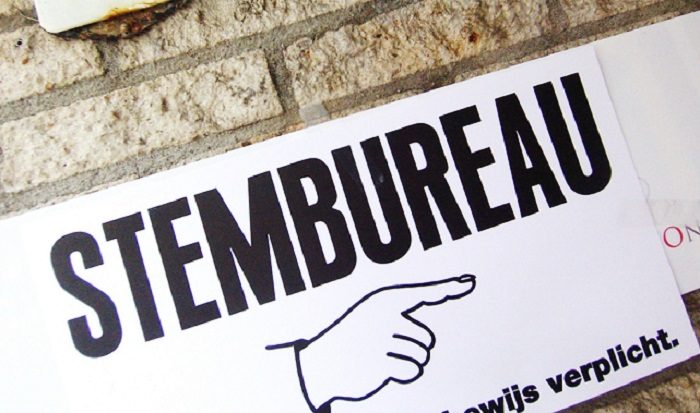
Last year many commentators were blown away by the British vote to leave the European Union (EU) and the election of President Donald Trump in the United States. The Irish commentator and economist David McWilliams called 2016 “the year of the outsider”. Predictions are that 2017 will not be different, with important elections taking place all over Europe. Many see the Dutch elections as “the first big test” of what’s to come. The country’s leading populist politician, Geert Wilders, has already proclaimed a “patriotic spring” that may increase the pressures on an already besieged EU. We previously wrote about how Dutch politics works, and about the rise and chances of Geert Wilders in the 2017 national elections. In this blog post, we question the idea that the Dutch elections mark the start of a “patriotic spring” – that is, the idea that “the people” will regain control from “the elite” at the national and European level.
So far “Europe” hardly plays a role in the Dutch election campaign. Even Wilders seems to steer away from the issue. As Stijn van Kessel of Loughborough University elaborates, data shows that the Dutch do not want a ‘Nexit’. Moreover, other issues are prevailing in the campaign. The most dominant overarching theme is the Dutch economy, and in particular the question of what policy to pursue in times of a budget surplus and low unemployment. The economy is typically a theme that Dutch politicians like to link to the EU (“lots of red-tape”, “we are net-payers”, and “no more money to Greece”). But in this campaign, politicians have rather linked it to the question of what is important to Dutch society: should extra money mostly go to creating more jobs, reforming the health care system, investing in climate change policies, improving the educational system, and so on.
Another overarching theme is that of what constitutes Dutch identity in the wake of globalization. A “patriotic spring” presupposes debates about national identity threatened by cosmopolitan elites and outside pressures. Yet, in the current election campaign the discussion seems to be rather more nuanced, centering on how to redefine national identity without necessarily rejecting immigration and European integration. For example, leader of the Christian Democrats Sybrand Buma emphasizes national symbols; he brought up the idea of having pupils sing the national anthem at schools. Jesse Klaver, leader of the Greens, rather emphasizes an inclusive culture of tolerance and diversity.
Moreover, it is quite likely that Wilders will be sidelined after 15 March. First, most parties have stated that they do not want to cooperate with him. Second, one week before the elections the latest polls also suggest that he will not gain the high number of votes that was predicted just a few weeks ago. This does not mean that Wilders’ ideas are being ignored. As has often happened in Dutch political history, mainstream parties had already adopted some of his populist and even nationalist discourse on issues such as immigration and European integration. For instance, while at face value his ideas seem to be less prominent, the fact that identity is a key issue during the current campaign can be attributed to him.
Interestingly, in the wake of the alleged “patriotic spring”, a counter movement even seems to be emerging. The “rise of the populist right” is often seen as a linear process, starting with Brexit and Trump, and continuing throughout elections on the European continent. But pitted against the populist right-wing ideas of Wilders are a set of beliefs that stress diversity and openness towards outside influences. This is most visibly illustrated by the increasing support for parties such as the social-liberal D66 and the Greens. There seems to be a similar trend in France and Germany, where, respectively, pro-European Emmanuel Macron and former European Parliament President Martin Schulz are making unexpected gains in the polls. They too emphasize ideas of openness and tolerance and the need to cooperate at the European level.
All in all, it could just as well be that the Dutch elections will not lead to the start of a “patriotic spring” of the European populist far right, but signal a rebalancing of European politics.
Further Reading on E-International Relations
- Brexit and the 2019 European Elections
- Opinion – Brexit and Its Many Identities in the UK
- The Rise of Populism: a Threat to Civil Society?
- Pluralism vs. Ultra-Nationalism: The Real Cleavage Behind Turkey’s Elections and Populism’s Rise
- Brexit, Hong Kong and the Arab Spring: Voices of the People
- Opinion – The Fragile Power of Populist Leaders in a Pandemic